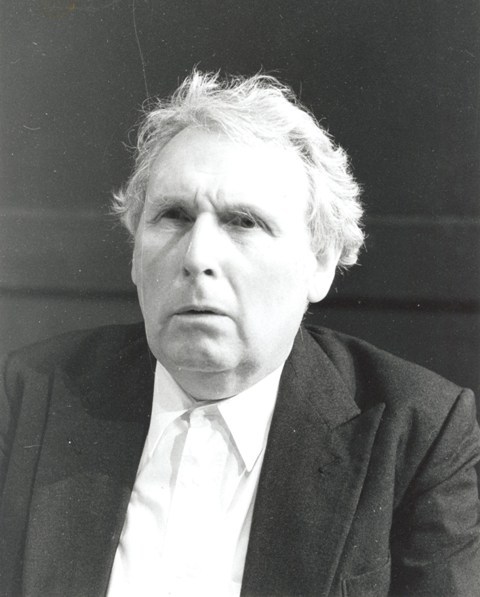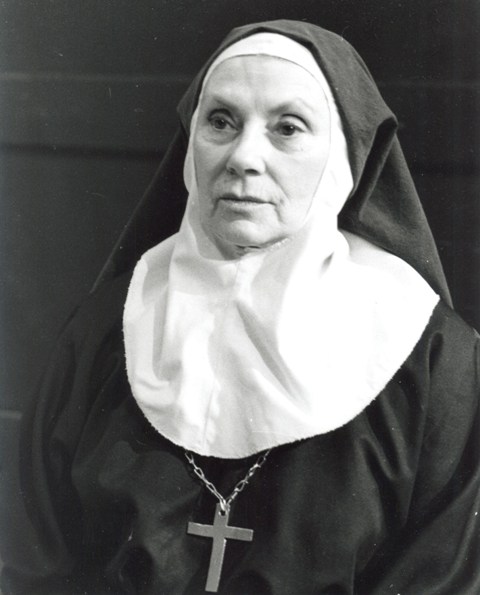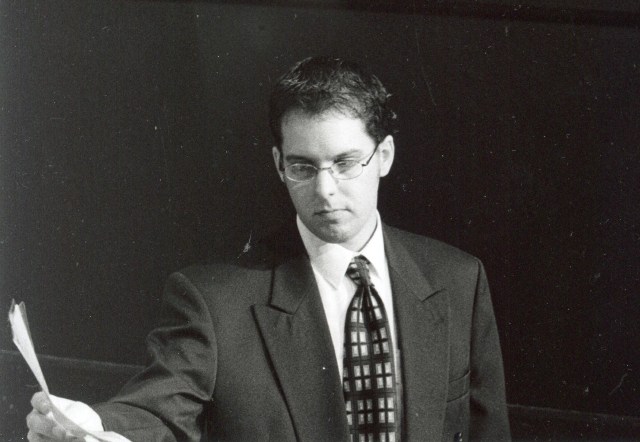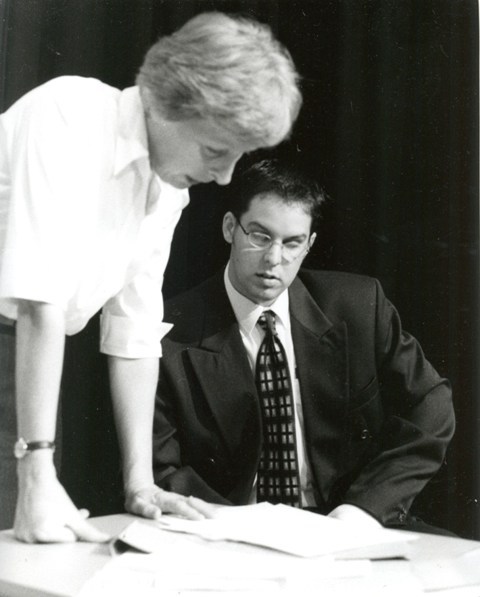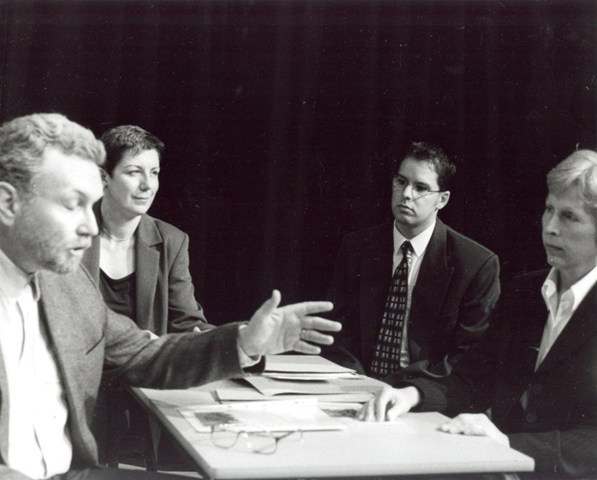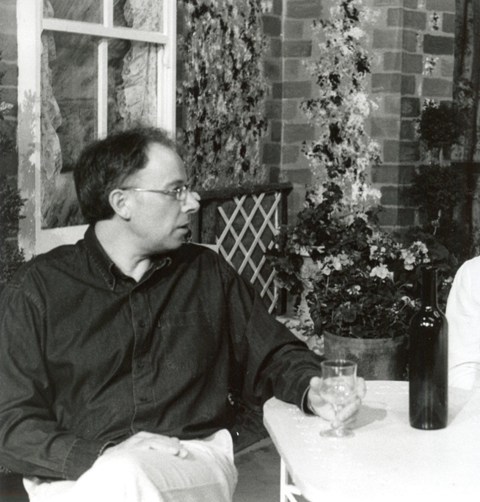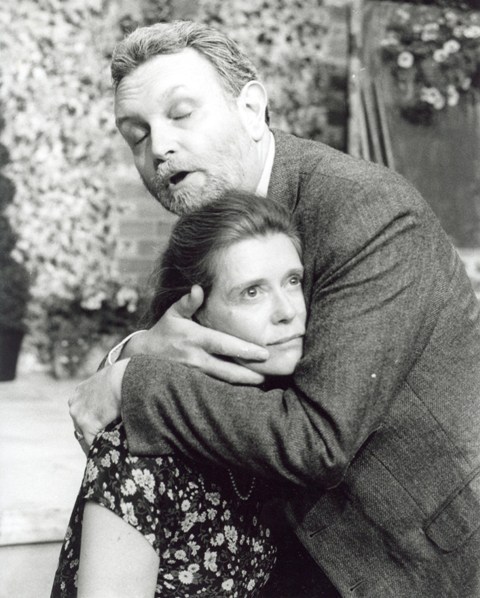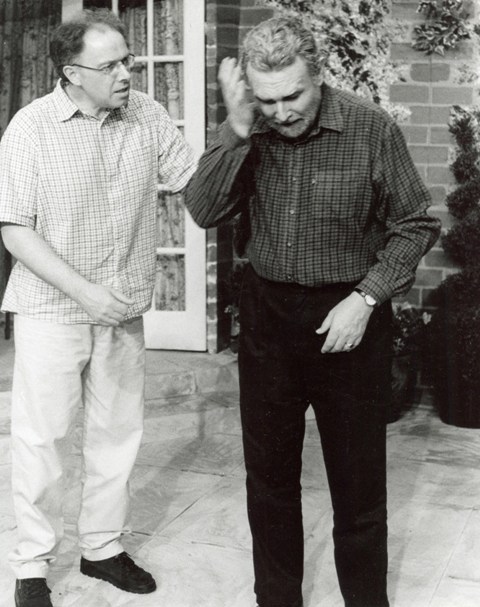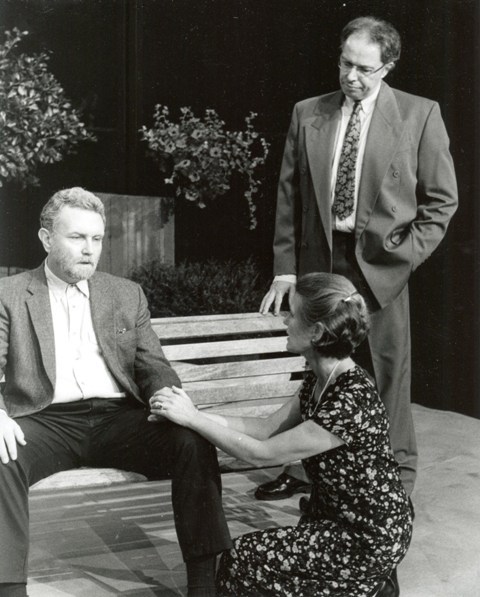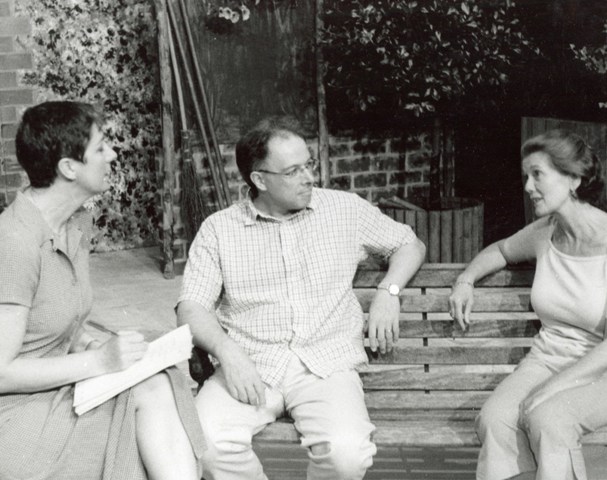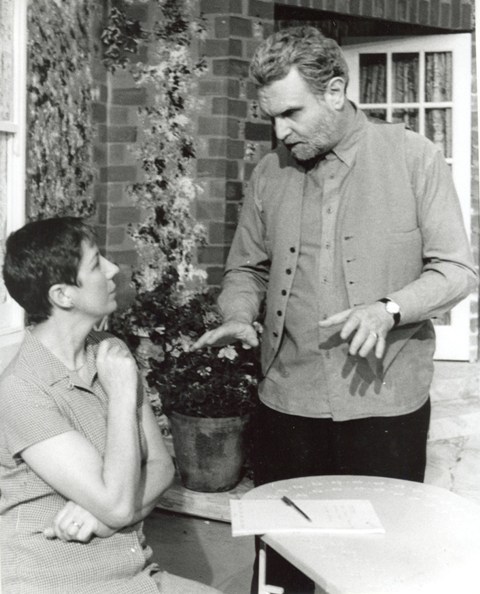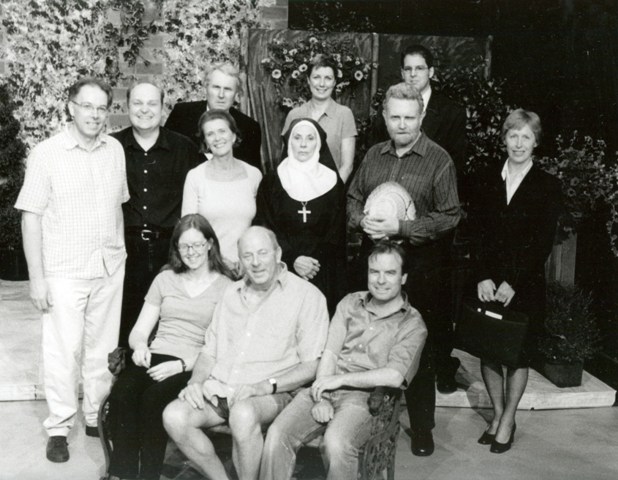The Bench Production
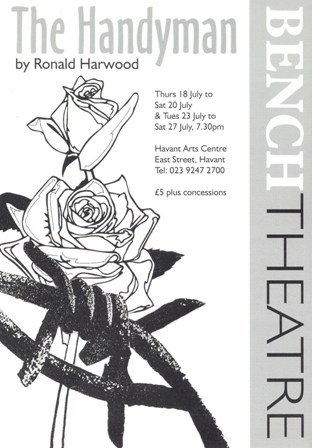
This play was staged at Havant Arts Centre, East Street Havant - Bench Theatre's home since 1977. It was in fact the world premiere of this version of the story, which included a revised ending and a change of gender for the character of The Detective Inspector. Bench Theatre was also lucky enough to be visited by the author during rehearsals, only the second time that this had occurred, when the author was not a competition winner or from the company's own membership.
Characters
| Roman Kozachenko 'Romka' | David Penrose |
| Cressida Field | Judy Bodenham |
| Julian Field | Chris Walker |
| D I Washbourne | Sharman Callam |
| D C Mather | Richard Le Moingan |
| Marian Stone | Sally Hartley |
| Nikita Fedorenko | John Scadding |
| Sister Sophia | Ruth Prior |
Crew
| Director | John Batstone |
| Stage Management | Sam Emery Mark Wakeman |
| Set Design | Simon Walton |
| Lighting Design | Andrew Caple |
| Lighting Operator | Simon Walton |
Interview with Ronald Harwood
Playwright, Ronald Harwood, came to a rehearsal and to discuss the play with us. Here are some highlights of the discussion:
Do you think Romka is guilty?
RH: I don't know and if I did I wouldn't tell the audience. I don't believe in using the theatre to teach but rather to provoke, intrigue and leave them wondering. I like the play to have grey areas.
Where do you stand on Jewish issues?
RH: I happen to be Jewish but I don't consider myself a 'Jewish' playwright. Sometimes in conversation with people I don't know I say early on that I am Jewish; this is not being self-conscious but rather to prevent any embarrassment about what may be said later. I was not pleased when on a TV Arts discussion programme the poet and critic Tom Paulin, speaking of Mahler's Conversion, referred to me as 'the Jewish playwright'. I don't start from an agenda but I don't think any thoughtful or serious person can address aspects of the last century without acknowledging the critical area of the Nazi regime. So called 'Holocaust denial' is very dangerous at the moment, the work of David Irvine and attitudes towards Israel, frightening in their implications.
'The Handyman' was first staged in 1996. Do you think that in its referring to special legislation to deal with post-war immigrants, a key issue at the time, it is now dated?
RH: Far from it. The concerns I've tried to give voice to are if anything, more relevant. Outbursts of anti-Semitic feeling, the emergence of aggressive right-wing populism demand continual vigilance on the part of people who like to consider themselves civilised.
How do you feel about us, a small local amateur company, putting on your play?
RH: Very happy. It will be particularly interesting the new ending getting an airing. Normally I never go back. When a play is done, it's done. On to the next thing. You will know this play now better than I remember it. Good luck!
Reviews
The NewsDaniel Bardsley
Superb acting in often forgotten story
This play brings up the often forgotten second world war massacre of Jews in the Ukraine. However it is not set on the continent, but in 1990s Sussex.
Despite having only a handful of scenes, most lengthy, but creates great tension as the handyman, a seemingly inoffensive old man working for a well-off English couple, is accused of terrible war crimes. The horror of what took place is recounted vividly. The trauma of those caught up in the hunt to find those responsible is just as moving.
This play premiered at Chichester in 1996 and it's doubtful that professional show was any better than this amateur one - the acting really is superb.
The News, 19th July 2002
